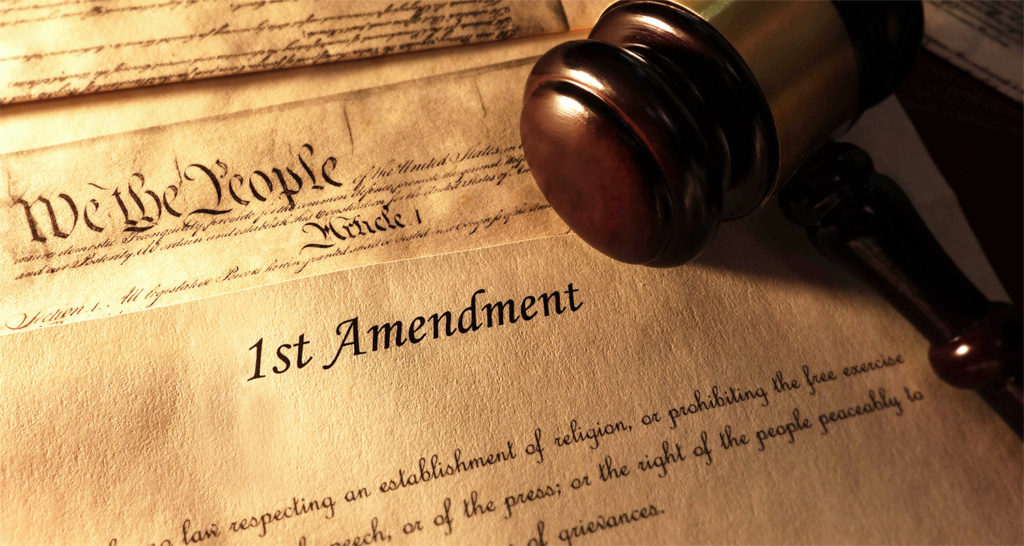Christians have been celebrating Christmas for almost 1,900 years. Some who know some of the academic arguments about the origin of Christmas may raise their eyebrows at the claim of 1,900 years since most academics will say that the first celebration of Christmas was in 336 CE. I'm going to address that in this article, but there are actually quite a few myths that go around during Christmas time that have persisted for centuries. Some of these myths come from the academic world and some come from Christianity itself. There are many Christmas myths, but I've narrowed it down to five:
- “Xmas” does not take Christ out of Christmas
- December 25th is the first day of Christmas, not the last
- Christmas and associated celebrations were not adopted from Saturnalia or Sol Invictus
- Jesus most likely wasn’t born in the winter
- Jesus' conception was not the Immaculate Conception
- You’re not a bad Christian if you do or do not celebrate Christmas
·
“Xmas”
does not take Christ out of Christmas
X is the first letter for Christ in Greek (Χριστός).
Using "X" as an abbreviation for Christ began in the first century
when some of the apostles were still alive. If using the letter X in place of
Christ was offensive to God, I'm sure the issue would have appeared in the
epistles somewhere. The use of "X" as an abbreviation for Christ
continued in the Latin church even though "Ch" replaces the X. When
there are no printing presses, parchment is expensive, and literally, everything
has to be written out by hand, a lot of stuff gets abbreviated except in the
most important documents. The first use of the term "Xmas" in
reference to "Christmas" was recorded in 1021 by an Anglo Saxon
Christian who abbreviated Christmas by replacing the word "Christ"
with an abbreviation that had been in accepted use by Christians for more than
900 years.
So, Merry Xmas.
·
December
25th is the first day of Christmas, not the last
Around this time of year, a lot of stores have a
"Twelve Days of Christmas" sale that usually starts in the second or
third week of December. This has led a lot of people to believe that the 12
days of Christmas begins on December 14th and ends on December 25th.
In western
Christianity, a church liturgical calendar came into use in the 5th
century and went through a constant evolution. Several of the holidays that Christians celebrate, including Christmas
and Easter were already celebrated for a couple hundred years in various regions of western Asia and Europe. As those celebrations came to be commonly accepted holidays within the church, they were added to the church liturgical calendar.
The beginning of
the liturgical year begins with the season of Advent, which begins on the
fourth Sunday before Christmas. This year, the first Sunday of Advent was
November 28th and yesterday, December 19th was the fourth and last Sunday of advent. The last
day of Advent is December 24th, Christmas Eve. Then, Christmas, the celebration
of the birth of Jesus Christ, begins on December 25th and lasts 12 days, ending
on January 5th. January 6th is called Epiphany or Three Kings day, which
commemorates the visit of the magi, and officially ends what many call Christmastime (Advent, Christmas, Epiphany).
In the 18th century, the enlightenment encouraged a great
deal of anti-religious skepticism. In the west, that meant questioning
everything about Christianity. I personally have no problem with that because
it doesn't matter what you believe in, you should know what you believe, why
you believe it, and how to defend it. The problem was that a lot of
enlightenment academics simply grasped at straws or fabricated evidence against
Christianity.
Examples of fabricated evidence include Gerald Massey's
Christ-Myth theory where he suggests that Jesus not only did not exist but
that all of the stories concerning him were borrowed from other sources. The
virgin birth came from the myth of Horus and Mithraism. This is erroneous
because neither have virgin birth stories. Horus was miraculously born, but his
mother, Isis was not a virgin, Horus' conception still involved intercourse, and Mithras was born from a rock.
Skeptics of Christianity could not believe that Christianity could possibly have emerged on its own and looked at the religions popular in the
first century and suggested that Christians borrowed their stories, beliefs, and finally, their holidays from other
popular religions in the Classical Roman world.
The first holiday skeptics proposed as one of the origins of Christmas is Saturnalia. The
problem with suggesting that Saturnalia was influential on Christians is that
records show Romans celebrating Saturnalia going back to the second century BCE.
Saturnalia celebrations began on December 17th and ended on December 23rd—three days before and after the Roman observance of the winter solstice. Christmas starts on December 25th, five days after the solstice and then lasts twelve days.
Early Christians of the first three to four centuries would not have observed a holiday if it was associated with paganism in any way. If
you read the early church fathers, especially during the first three to four
hundred years of church history, they constantly warned against joining in
pagan celebrations or trying to adopt pagan practices for the church. So, for
the first two to three hundred years of Christianity, new Christians were
zealously anti-pagan. There was absolutely no record of Christians
celebrating anything like Saturnalia until the 4th century and even then, the
celebrations were much tamer. Even in the first century there was some controversy over any association with paganism, but more about that in the last Christmas myth. The academics of the 18th and 19th centuries have
to ignore this evidence to make their theory work.
The other Roman holiday suggested as the origin for
Christmas is the celebration of Sol Invictus. The Roman emperor Antoninus (Elagabalus) tried
to introduce Sol Invictus in 218 CE. He failed. Sol Invictus was a celebration
of a sun god from the Arabian peninsula, named Elagabal, which is where
Antoninus got his more well-known names: Elagabalus and Heliogabalus. The problem
was that Romans detested eastern and northern religions until the mid-third century CE. They were too foreign
and barbarian. Over the next half-century, several "barbarian"
practices became cultural norms, like wearing beards, and allowing eastern
religions to be syncretized into the Roman pantheon. Thus, in 274, Emperor
Aurelian was finally successful in introducing the cult of Egabal to the Romans
calling him Sol Invictus, and made December 25th the festival of Sol Invictus.
Aha! There it is! That's the day of Christmas. Since the first
official record in the church of December 25th as the day of Christmas happened
in 336 CE, it's clear that Christians borrowed this day from Sol Invictus. If
336 CE was the first time Christmas had been celebrated on December 25th, that
might be true. The problem is that in many countries, Christians had
unofficially been celebrating Christmas on December 25th going back to at least
150 CE in Antioch (modern-day Antakya, Turkey), 68 years before Elegabulus tried
to introduce Sol Invictus and 124 years before Aurelian was successful in
proclaiming Sol Invictus.
Scholars easily associate the birth of Christ with the
winter solstice because that's when the sun begins to dominate again, days
start getting longer, and life begins returning. The problem is that in
Christian theology, life does not begin at the time of birth, but at the time
of conception. This can be clearly seen in the biblical account of Mary's visit to Elizabeth when
John the Baptist leaps in Elizabeth's womb at the presence of the unborn Christ. This is also
reflected in early celebrations of the annunciation. The first official
mentions of the Festival of the Annunciation appeared in 656, but again, the
celebration of the virgin conception of Jesus unofficially began in the second century, at
least two decades before the first celebration of Christmas in Antioch. The annunciation
has traditionally been celebrated on March 25th for about 1900 years. If you add
nine months from March 25th, you land on...
wait for it...
December 25th.
Of course, 18th and 19th-century skeptics didn't care
about evidence that predated official church records, and modern skeptics and academics often still don't when it comes to Christianity. In fact, some of this
evidence wasn't discovered until the 20th century. In spite of discoveries that
show that Christmas on December 25th predates Sol Invictus by decades and has no
similarities to Saturnalia, modern skeptics continue to promote this academic
myth.
·
Jesus
most likely wasn’t born in the winter
The evidence from the Bible suggests that Jesus was born
sometime in the spring or early autumn. The reason for placing the annunciation
in March and by extension the birth of Christ in December has to do with
Rabbinical traditions regarding the date of creation and the Exodus from Egypt
that predate Christianity, but that's a whole other subject.
The reason we know Jesus could not have been born in the
winter is that the story of his birth includes "shepherds abiding in the
fields" (Luke 2:8). Neither the shepherds nor the sheep would have been in
the fields from late fall to late winter. Temperatures in and around Bethlehem
this time of year are highs in the low 50s and lows in the low 30s Fahrenheit
(0°-10°C). 2000 years ago, the overnight lows would easily have been at or below
freezing.
- Jesus' conception was not the Immaculate Conception
The doctrine of the Immaculate Conception and the Virgin Conception are two separate doctrines, the former being rejected by Protestant Christianity. The Immaculate Conception is a doctrine in the Catholic Church, both East and West, that says that in order for Jesus to be born without sin, He could not have been born of a sinful human.
To solve the problem of Mary passing on original sin through her blood, the Catholic Church introduced the idea of Immaculate Conception. The idea was so controversial, even though it was widely believed for over 1,000 years, that it wasn't made an official doctrine of the Catholic Church until 1854 CE. The Immaculate Conception teaches that Mary was excused by God of the stain of original sin at the moment of her conception. So, according to this doctrine, even though Mary was naturally conceived by Anne and Joachim, at the moment of conception, God proclaimed her sinless.
This doctrine developed from a lack of biological knowledge, specifically embryological knowledge going back to Hippocrates in Classical Greece. It was believed for centuries that children received their blood from their mothers. If Jesus received His blood from Mary, then He could not have been sinless or divine, and thus not God in the flesh. It wasn't until the 18th century that scientists discovered that human embryos develop their own blood and this was confirmed in 1901 when blood types were discovered. Because of this, even early protestants, like Martin Luther did not fully reject the Immaculate Conception but modified it.
Most protestant denominations reject the Immaculate Conception of Mary today, because the doctrine of the Virgin Birth perfectly solves the original sin problem from the biological perspective. While Jesus was born of a virgin, and His genetic information may have even been similar to Mary's, He did not need her genetic information, much less her blood, in order to be conceived and born.
·
You’re
not a bad Christian if you do or do not celebrate Christmas
Many Christian cults, such as the Jehovah’s Witnesses and
some churches and Christians in fundamentalist branches of orthodox denominations, have abandoned Christmas and all of its
trappings because they have bought into the skeptic claims regarding Christmas
and many other Christian holidays. It doesn’t help that academics, even
Christian apologists, have missed out on some of the evidence I’ve presented
above. If you use an internet search engine to research the origins of
Christmas, you will have to dig deep to find any mention of the celebration in
Antioch in the mid-second century or its relation to the dating of the annunciation. This cements the idea of Christmas being
pagan in the minds of some Christians, and something to be avoided.
There are three passages from the Bible that I would
refer to and then a logical argument.
First, the argument over whether Christians should
celebrate any holiday or participate in non-Christian holidays is addressed by
the issues covered in Romans 14, 1 Corinthians 8, and Colossians 2.
In Romans 14, Paul addresses Christians that are taking
issue with each other because of “doubtful disputations.” Evidently, Christians
in Rome were criticizing one another for matters that had nothing to do with
doctrine or morals. There were Christians in the early church who chose a
vegetarian diet. This was likely due to most meat available in public markets
having been first sacrificed to pagan idols and many Christians thought they would
be associating with pagan practices by eating meat offered to idols. Paul
addresses this same issue in more detail in 1 Corinthians 8. In both places,
Paul makes it clear that Christians are free to eat whatever they want and are
even free to restrict their diet if eating certain things made them feel guilty
because of pagan associations (Rom. 14:2, 1 Cor. 8:7-10). Paul said that is
something we shouldn’t judge others about (Rom. 14:13), nor should we be
concerned about others judging us (Col. 2:16). He gives other examples, too:
Judging someone’s servant (Rom. 14:3), and giving precedence or celebrating
certain days (Rom. 14:5, Col. 2:16).
The issue of whether someone chooses to celebrate
Christmas or not falls under that latter point. Basically, if you choose to
celebrate Christmas and you’re doing it to glorify God, then it’s fine. If you
don’t celebrate Christmas because your faith suffers due to alleged
associations with paganism, that’s also fine. If you do celebrate Christmas, you
have no right to condemn those who don’t. If you don’t celebrate Christmas, you
have no right to condemn those that do. Period. While it was in vogue to avoid
any appearance of association with paganism during the period of many of the
early Church Fathers, Paul is pretty clear that buying meat offered to idols
isn’t a big deal, theologically, and other pagan associations like “esteeming”
certain days above others also don’t matter either.
Now for the logical argument. Let’s say for argument’s
sake that it could be definitively established that all popular Christian holidays
have pagan origins. First, I would appeal back to the biblical precedent above.
Second, I would ask a few questions.
1.
How many people are even remotely aware or even
care about Christmas’ alleged pagan origins? Very few. Outside of Christianity,
only the most dedicated skeptics and some non-Christians who stumbled across
this information are aware the information even exists.
2.
How many Christians, regardless of their
knowledge, celebrate Christmas in a pagan way? Almost none and that includes most
progressive Christians.
Most adults don’t tell their kids that all the
decorations and symbols associated with Christmas are of pagan origin. By the
time people hit adolescence, if they were raised in even a nominally Christian home where
Christmas is celebrated, the holiday and all the associated trappings and décor
are firmly associated with Christianity. It isn’t until high school, college,
or some other area of adult life that people first come across the idea that
Christmas and other Christian holidays have pagan roots. Even after they hear
of these alleged connections to paganism, most Christians can’t wrap their
heads around the idea because the symbols have been so filled with Christian
meaning in their minds.
When Christians begin decorating for Christmas, usually
around Advent, they’re putting up decorations that they associate with
Christianity: green is the liturgical color associated with eternal life, red
is the liturgical color associated with sacrifice, blue and violet are the
liturgical colors associated with divine royalty, white and silver are the
colors associated with divine purity, and gold is the symbol of divinity. Circles
symbolize eternity, stars symbolize the Star of Bethlehem, Candles represent
the Christ as the light of life, the gospel as the light of truth, gift-giving
is associated with the gift of the magi, bells represent proclamation of Christ’s
birth, and on and on and on the list goes.
This is what Christmas means to most Christians. They see
celebrating Christ’s birth in the weeks leading up to December 25th
as an act of worship. Worshipping God is, biblically, the chief way Christians
glorify Him. Thus, I assert that Christians who celebrate Christmas are not engaging in any pagan act.
This is why it doesn’t make sense to most Christians that anyone
would criticize celebrating Christmas, and biblically why those who don’t
celebrate Christmas should not criticize or look down on those who do. It goes the
other way, too. If you celebrate Christmas, you have no right to criticize or
look down on Christians who don’t.




